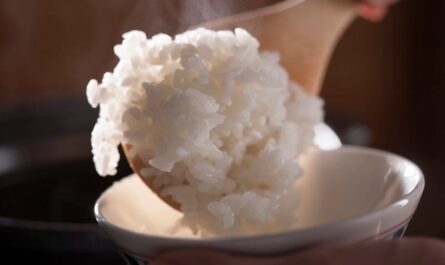For sushi lovers, cutting sashimi without tearing is an important skill. Ensuring that each piece is perfect requires practice and the right techniques. This guide will provide you with all the information needed to cut sashimi beautifully.

Understanding Sashimi
Before diving into the techniques, it is crucial to understand what sashimi is. It is a Japanese delicacy consisting of fresh, raw seafood sliced into beautiful pieces. The term ‘sashimi’ literally means ‘pierced meat’ in Japanese.
Importance of Skillful Cutting
Properly cutting sashimi is essential to maintaining its texture and flavor. A beautifully cut piece enhances the dining experience.
Why Does Tearing Matter?
Tearing affects not only the appearance but also the texture. A clean cut ensures the wonderful, melt-in-your-mouth experience that sashimi is known for.
Essential Tools
Achieving excellent cuts begins with using the right tools. A sharp knife is crucial.
Choosing the Right Knife
For sashimi, a sashimi knife or ‘yanagi bch’ is recommended. The long, thin blade helps to slice the fish in one motion, preventing tears.
Maintaining Your Knife
Keep your knife in prime condition by regularly sharpening it. [Understanding knife care](https://sushiandrice.com/care-tips-for-wooden-sushi-tools/) can make a difference.
Preparing the Fish
Preparation starts even before cutting.
Ensuring Freshness
Freshness is key. To cut sashimi without tearing, always select the freshest possible fish. [Learn more about maintaining ingredients](https://sushiandrice.com/using-hangiri-to-cool-sushi-rice/).
Fish Cleaning Techniques
Cleanliness affects the quality of cuts. Removing scales and skin correctly is crucial.
Cutting Techniques
Let’s explore the cutting techniques that will ensure each slice is pristine.
The One-Motion Technique
A single motion is the most effective way to prevent tearing. Place your knife at a slight angle and slice smoothly in one stroke.
Adjusting Your Grip
Grip your knife firmly, yet lightly, to maintain control without exerting too much pressure.
The Right Angle
Maintain a gentle angle when slicing to enhance the texture and presentation.
The Benefits of Practice
Consistent practice is essential. The more you familiarize yourself with the technique, the more seamless your cuts will become.
Practice with Similar Textures
Start with ingredients that have a similar texture to feel confident before cutting actual sashimi.
Common Mistakes to Avoid
Applying Excess Pressure
Too much pressure causes ripping. Allow the knife to glide naturally.
Improper Knife Choice
Different knives suit different tasks. Investing in the right knife is significant for seamless cutting.
Cleaning and Storing Equipment
After preparing your sashimi, cleaning utensils correctly is crucial to maintain hygiene.
Read more about [bamboo mat care](https://sushiandrice.com/how-to-maintain-bamboo-mats/).
Tips from Professionals
Learning from experts offers invaluable insights.
Chef Recommendations
Professional chefs recommend trusting your instincts and developing a smooth, rhythmic style.
For more information on sushi etiquette, check [here](https://www.opentable.com/blog/sushi-etiquette-dos-and-donts/) rel=’nofollow’ style=’color: blue;’.
More Resources
New sushi enthusiasts can start with [compact sushi tool kits](https://sushiandrice.com/compact-sushi-tool-kits/).
Conclusion
Mastering the art of cutting sashimi without tearing elevates the sushi-eating experience. With the right techniques and tools, anyone can achieve perfection in their sashimi presentation.

FAQs
What type of knife is best for cutting sashimi?
The sashimi knife, known as ‘yanagi bch,’ is ideal.
How can I prevent tearing when slicing fish?
Use a sharp knife and perform the cut in one smooth motion.
How do I ensure my sashimi is fresh before cutting?
Always purchase from reputable suppliers and keep it chilled before slicing.
This article contains affiliate links. We may earn a commission at no extra cost to you.




